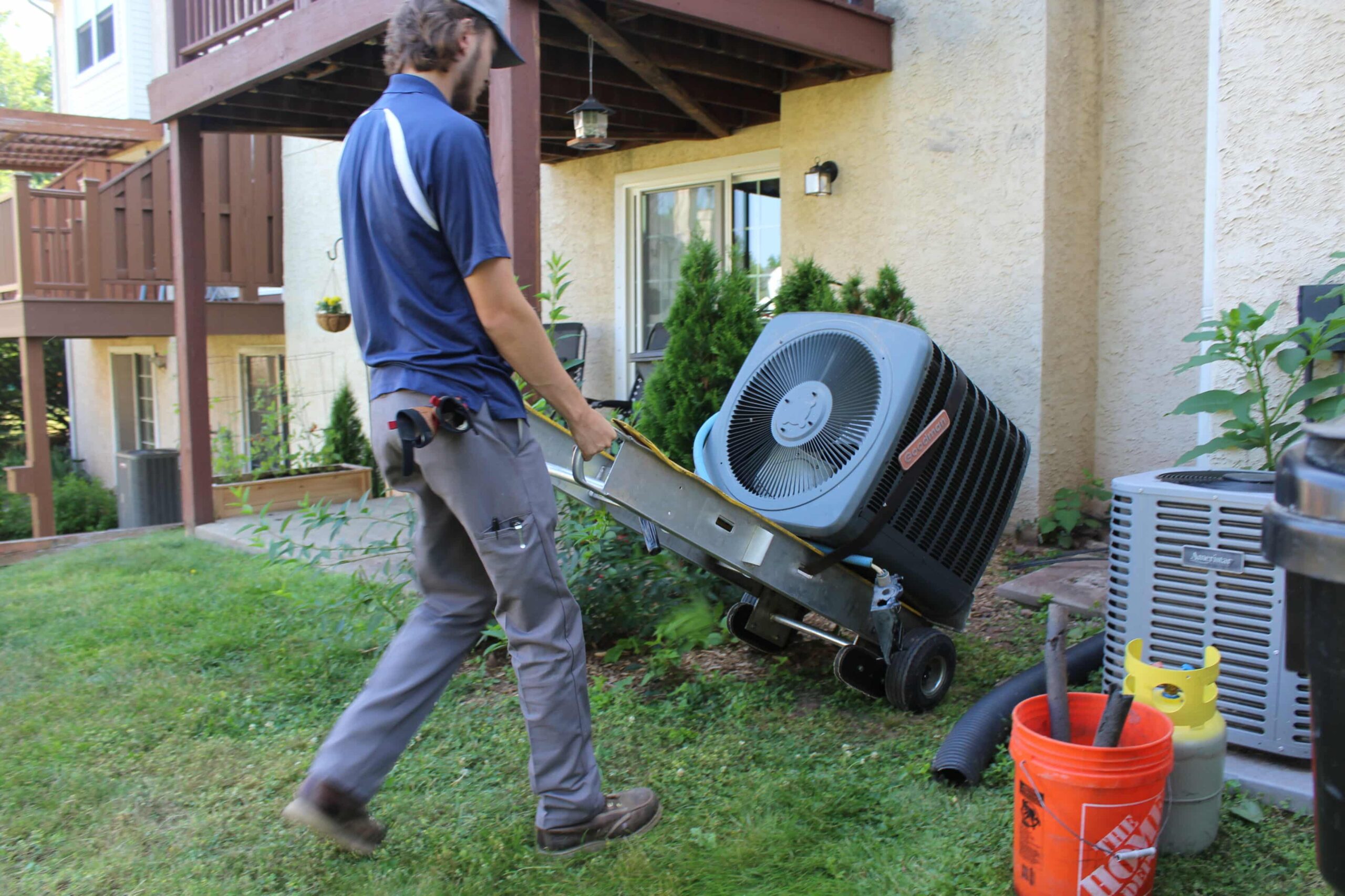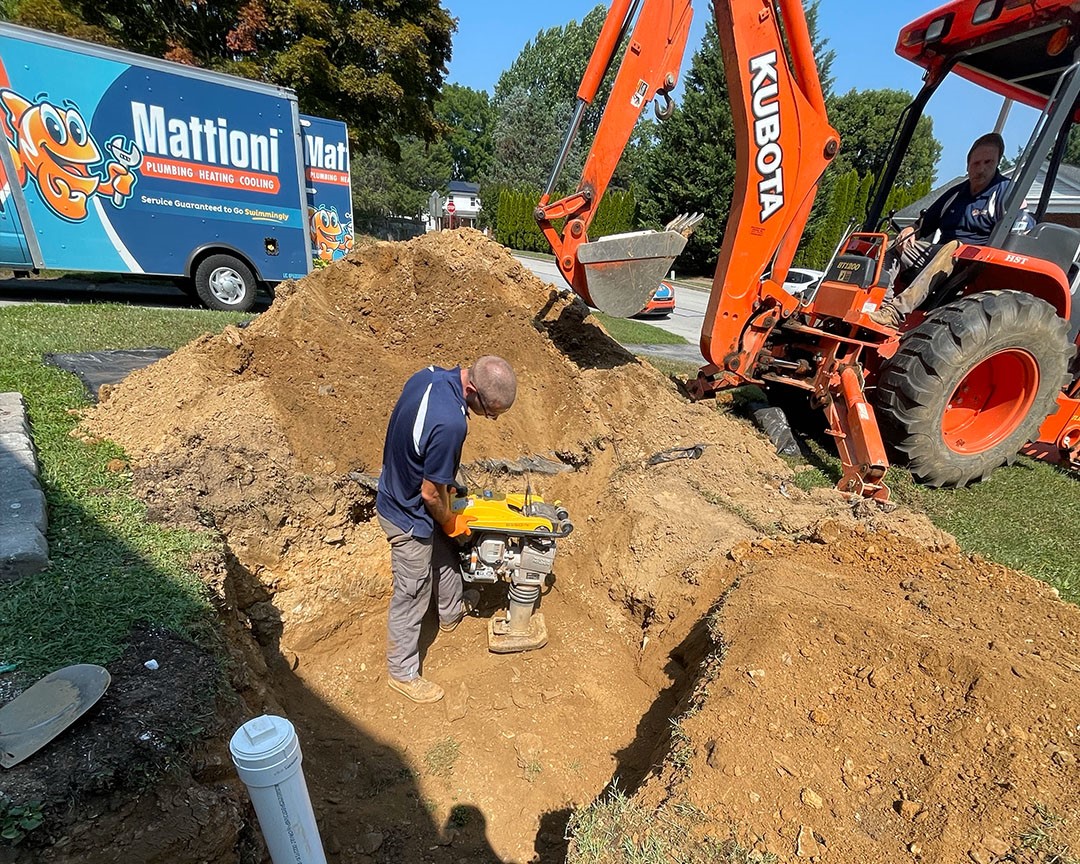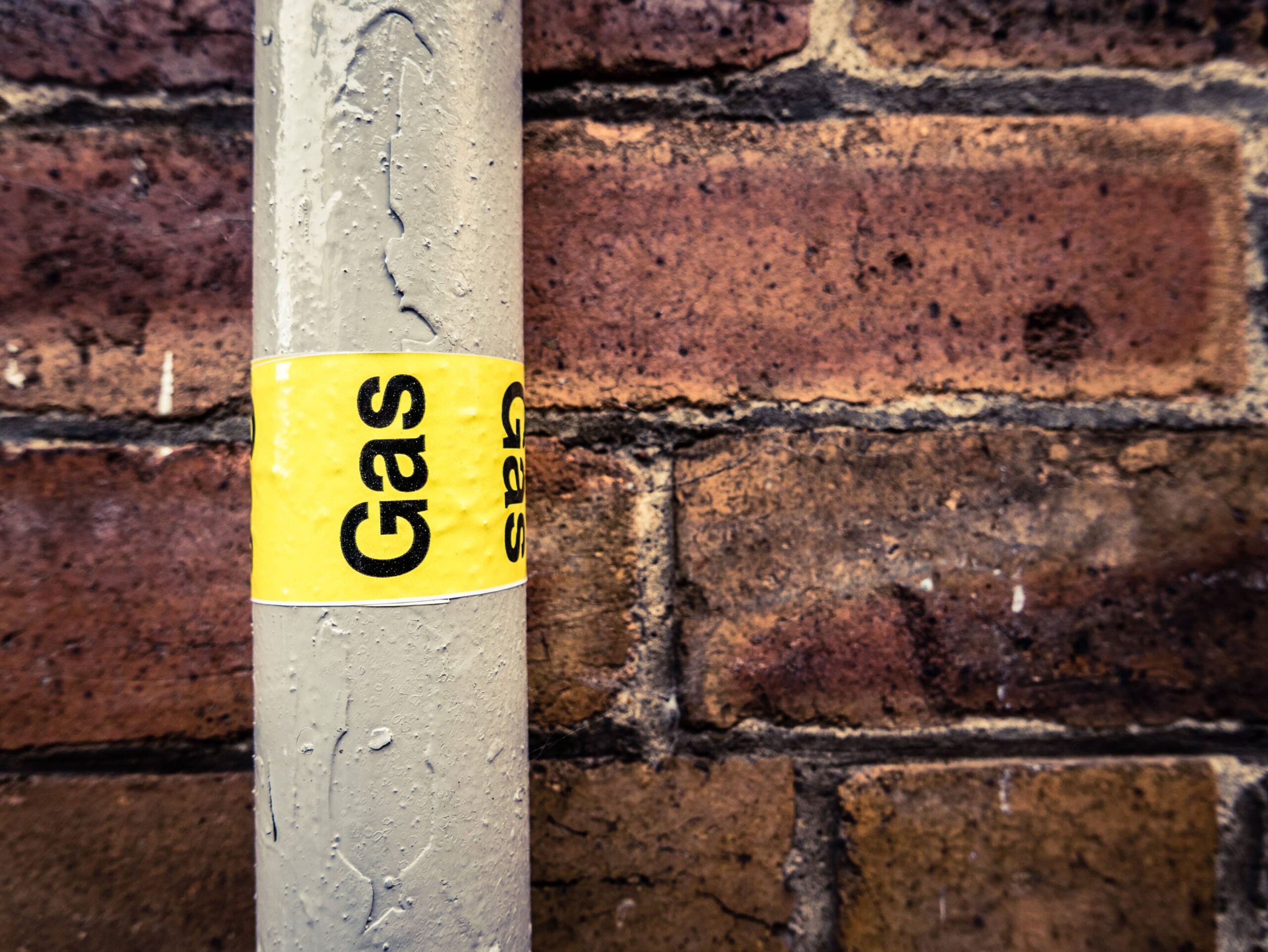|
Getting your Trinity Audio player ready...
|
Is your home’s heating or AC system starting to feel more like a burden than a comfort? When temperatures skyrocket in the summer or plummet in the winter, we find out how much we can count on our HVAC systems.
An aging, unreliable HVAC system can mean more than just an uncomfortable home environment. Rising energy bills, rooms that never seem to reach the right temperature, and the constant worry of whether your system will hold up during extreme weather can create a lot of stress.
If your heating or cooling system is over 10-12 years old and you’re experiencing persistent issues like these, it might be time to consider HVAC replacement.
At Mattioni, we know that deciding to replace your heating or AC system replacement isn’t just another task on your to-do list; it’s an important investment in your home’s comfort and your peace of mind for the next decade and beyond.
We often hear homeowners asking, “When’s the best time for HVAC system replacement?”
While the exact answer depends on the details of your situation, there are general guidelines that can help you avoid the stress of emergency replacement and ensure you get the most value for your investment. With over 75 years in business, our heating and cooling professionals are here to guide you through this decision with confidence.
In this article, we’ll explore the signs that indicate it’s time to replace your HVAC system, the benefits of proactive versus reactive replacements, the best times of year to make your purchase, and how to maximize the value of your new system. By the end, you’ll have the knowledge you need to make an informed decision and secure your home’s comfort for years to come.
4 Warning Signs Your HVAC System is on Its Last Legs
There are a few telltale signs that your heating or AC system is on its way out. Here are the four big ones to look out for:
- The System is Aging Over 10-12 Years
One of the simplest ways to monitor the status of your HVAC system is to track its age. Most systems, including air conditioners, furnaces, and heat pumps, have a typical lifespan of about 10 to 12 years.
If your system is approaching or has surpassed this age range, it’s likely to operate less efficiently than it was once capable of, as many components are prone to wearing out over time. While regular maintenance can extend the life of your system, all systems will inevitably run into increasingly larger issues related to wear and tear.
As your system ages, it may begin to struggle to maintain consistent temperatures, causing your home to be less comfortable and consume more energy.
- Rising Energy Bills
If You’ve noticed a steady increase in your energy bills with no changes in your lifestyle, your aging HVAC system could be the culprit. Aging systems become less efficient over time, which means they require more energy to produce the same amount of heating or cooling.
This decrease in efficiency is often gradual, making it easy to overlook until you compare your current bills with those from previous years.
- Noticeable Drop in Comfort Level
A drop in comfort level is another clear sign that your HVAC system may need to be replaced. If certain rooms in your home are consistently warmer or cooler than others, or if the system struggles to maintain a comfortable temperature, it could be a sign that your system is no longer capable of meeting your home’s heating and cooling demands.
If you’re frequently adjusting the thermostat to maintain comfort, your system may need to be replaced.
- Frequent Repairs Not Covered by Warranties
As your HVAC system nears the end of its lifespan, you may find yourself calling for repairs more often. While occasional repairs are nothing outside of the ordinary, frequent repairs that are no longer covered by a warranty are a strong indication that your system is near the end of operation. The steep cost of these repairs can add up quickly, and at some point, it’s more cost-effective to replace the system rather than continue to patch it up.
Should You Wait for Your HVAC System to Fail Before Replacing It?
When it comes to the timing of making the call to install your next heating or cooling system, we’ve found that there are two options: proactive or reactive replacement. While it might be tempting to put off replacement until absolutely necessary, this approach can lead to higher costs and greater inconvenience in the long run.
Reactive Replacement means waiting for complete system failure before replacing it. While this approach is commonly thought of to be cost-effective in the short term, it can lead to several issues:
- Increased Repair Costs: By prolonging the length of time spent depending on your current system, you’re almost guaranteed to spend more on repairs, while still incurring the price of your next system at some point.
- Potential for Heating or Cooling Emergency: System failures often happen at the worst possible times: during extreme weather when you need it most. This can leave you in an uncomfortable and potentially dangerous situation until a replacement can be installed.
- Higher Replacement Costs: Prices for HVAC system installations are only expected to rise over time. By waiting, you risk paying more for a new system than you would if you replaced it proactively.
- Reduced Efficiency and Comfort: Continuing to use an aging and inefficient system means you’ll continue to pay higher energy bills while you put off the replacement. You’ll also miss out on the immediate benefits of the newer technology in modern HVAC systems that’ll improve your home’s climate control.
Proactive Replacement, on the other hand, involves upgrading your HVAC system before it fails and offers many advantages:
- Immediate Efficiency and Comfort Improvements: A new heating or AC system will significantly improve your home’s energy efficiency, leading to lower utility bills. Additionally, modern systems provide more consistent temperature control, enhancing overall comfort.
- Peace of Mind: Replacing your system proactively means you won’t have to worry about unexpected breakdowns during extreme weather. You’ll have the assurance that comes with knowing your home will stay comfortable year-round.
- Reset on Warranties: Replacing your system will set you up with new warranties, often extending for 10 years, protecting you from repair costs for years to come. This provides significant savings when compared to maintaining an older system with an expired warrant.
- Potential Cost Savings: By replacing your system before it fails, you may take advantage of current pricing and avoid the likely cost increases that come with waiting. Additionally, a proactive approach can allow you to plan your replacement during an off-peak season, when installation costs may be lower.
What’s the Best Time of Year to Purchase an HVAC System?
The time of year you choose to purchase and install your new system is crucial and can significantly impact the cost and availability of installation services.
Realities of Peak Season Installations (Most Extreme Weather)
The peak seasons for HVAC companies are during the most extreme weather periods – summer and winter. During these times, installation crews are typically busier, and you may encounter the following challenges:
- Limited Availability: With more people requiring HVAC services at one time, installation companies may run into the limits of their resources which could lead to longer wait times for service.
- Higher Prices: Due to increased demand, prices for both HVAC systems and installation services are often higher during peak seasons. You may also have fewer opportunities to take advantage of discounts or promotions.
Realities of Off-Season Installations (Spring and Fall)
The off-seasons for HVAC companies – spring and fall – are generally the best times to replace your HVAC system. During these milder weather periods, heating and cooling companies are less busy, and you can benefit from:
- Greater Availability: With fewer customers needing immediate service, installation companies have more resources to provide quicker installations at convenient times in your schedule.
- Potential Discounts: Many installation companies offer discounts or promotions during the off-season to encourage business. These discounts can make it more affordable to upgrade to a new system.
Strategies to Get the Most Value Out of Your HVAC Replacement
When replacing your HVAC system, it’s essential to consider all your options to ensure you get the most value from your investment by selecting a system that fits the unique needs of your home. Here are some tips to help you maximize the benefits of your new system:
Explore High-Efficiency Heating and Cooling Systems
Upgrading to a high-efficiency HVAC system can significantly reduce your energy costs and improve your home’s comfort along the way. Here are some options to potentially consider:
- 90% Furnaces and Boilers: If you’re looking to replace your heating system, be sure to consider selecting a system with at least a 90% AFUE rating. These systems are the most efficient traditional heating systems and can help to lower your utility bills.
- Mini Splits: These ductless systems provide efficient heating and cooling, in part by allowing you to easily control the temperature in individual rooms. Mini splits are ideal for homes without existing ductwork or for adding climate control to specific areas.
- Heat Pumps: Heat pumps are an energy-efficient option for both heating and cooling. They work by transferring heat rather than generating it, making them a greener choice than many heating systems. Heat pumps are particularly efficient during the winter and can significantly lower your energy bills.
- Variable-Speed AC & Heating Systems: These systems can adjust their heating or cooling output to more precisely match your home’s needs, rather than running at full capacity all the time. This leads to more consistent temperatures, lower energy use, and less wear and tear on the system.
- Hybrid HVAC Systems: A hybrid system combines a heat pump with a furnace or boiler, and switches between the two depending on the weather. This approach maximizes efficiency and comfort, particularly in regions with varying seasonal temperatures.
Make All Possible Financial Considerations
Replacing your HVAC system can be a significant investment, but there are ways to make it more affordable:
- Financing and Payment Plans: Many HVAC companies, including us, offer interest-free financing options that allow you to spread the cost of your new system over several months, or longer. This can make a significant purchase more manageable in the short term, and we encourage anyone to take advantage of offers like this.
- Rebates and Incentives: There are many rebates and incentives available for high-efficiency systems, through local utility companies and federal tax credits, to encourage the adoption of environmentally-friendly systems. These rebates can help make your HVAC investment more affordable.
Making the Right Call for the Timing of Your Home’s HVAC Replacement
Dealing with an aging HVAC system can be a major source of stress that causes lingering discomfort and climbing energy bills.
You should now know these are a couple of warning signs that your heating or AC system may be nearing the end of its life. Rather than letting this situation impact your home’s comfort and peace of mind, the Mattioni team recommends taking a proactive HVAC replacement approach.
By planning ahead, you’ll save on costs to repair your current unit, avoid higher utility bills tied to the inefficiency of an aging system, and receive lower installation rates if scheduling the job during spring or fall.
Be sure to evaluate high-efficiency options that can immediately minimize energy bills and provide maximum comfort, and often quality for rebates and other financial incentives.
Exploring all your replacement options and how they’ll impact your home and budget is the best way to end up with a system that not only solves your current problems but also maximizes the long-term value of your investment.
Don’t let an unreliable heating or AC system continue to be a distraction in your life. Take control of your home’s comfort today by scheduling a consultation with our team of HVAC professionals.
We’re here to help you navigate this important decision and ensure that your home remains a place of comfort and peace of mind for years to come. Call us at (610) 400-8510 or book an appointment online now.








